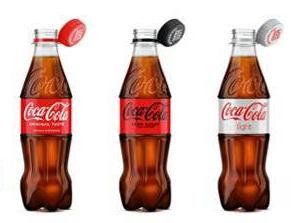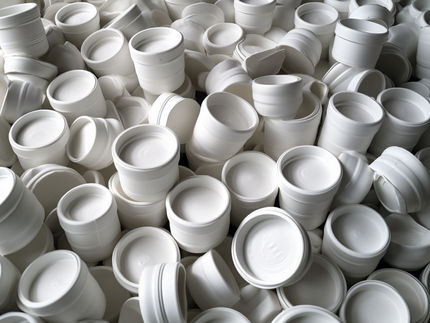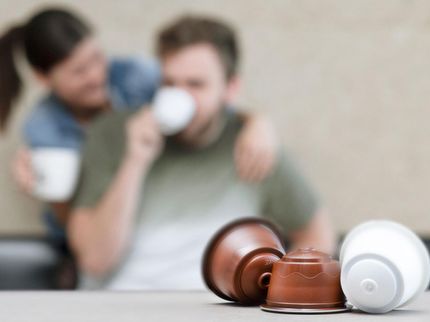Cap and bottle: now inseparable - Coca-Cola converts caps on non-refillable PET bottles for better recycling
New closures that remain firmly attached to the bottle after opening will soon be soon be part of everyday life for consumers throughout the EU
Advertisement
Twist it on, tilt the cap back, let it click into place and enjoy: From now on, people in Germany will increasingly notice a small but subtle change on the caps of Coca-Cola's non-refillable PET bottles.

New closures Coca-Cola
Coca-Cola
This is because the cap remains firmly attached to the neck of the bottle when it is screwed on. There is a good reason for this: the tight closure makes it even easier to collect and recycle all the bottle's components. Consumers simply leave the cap on the
bottle when drinking, reseal it, and return the packaging to the deposit machine as usual. "It retains the same great taste and drinking experience that people have come to expect from our beverages. We are proud to be one of the first manufacturers in Germany to start implementing new lids to improve the recycling loop two years before the transition period of the new EU requirement expires," says Tim Kolbe, Senior Brand Manager at Coca-Cola Germany.
Why is there this change?
Implementation of EU requirement by 2024: caps must remain on bottle
The company is changing the design in line with the EU directive on single-use plastic products, which requires beverage manufacturers to ensure that caps remain firmly attached to the bottle by 2024 to protect the environment. To make consumers aware of the new caps, Coca-Cola Germany will label the lids with the words "Leave me at it!"
"In Germany, 97 percent of disposable PET bottles are already returned via the deposit system, and around 95 percent of these even come with lids. But in the future we also want to recycle the last lids and are showing pioneering spirit here in Germany with the changeover as one of the first countries at Coca-Cola in Europe," says Dr. Stefan Kunerth, Technical Operations Director Western Europe at "The Coca-Cola Company." The aim is to convert all German plants to bottles with the new closures in their production by January 2024. Due to the gradual changeover, which is a result of the size of the production network, non-refillable PET bottles with both the previous type of closure and the new closures will be on sale for a while.
Avoiding plastic waste in Europe and the world
The changeover to the new caps is now gradually beginning at The Coca-Cola Company in other EU countries. After all, improving the collection and recycling of packaging waste is a top priority for Coca-Cola. However, deposit systems based on the German model are not yet in place everywhere in Europe. When the caps are attached to the bottle, this also ensures a better recycling cycle in EU countries without a deposit system. Thus, the new caps are a further step towards avoiding packaging waste and pay towards The Coca-Cola Company's global corporate goal: a world without waste. By 2030, The Coca-Cola Company aims to collect one bottle or can for every one it puts on the market, ensuring that all packaging is recycled and none of it ends up as waste.
New cap type also saves up to 1.37 grams of plastic per bottle
In Germany, Coca-Cola is also using the changeover to the new closures as an opportunity to reduce the overall amount of material used in its bottles. The new closures can thus save a total of up to 1.37 grams of plastic per bottle. This in turn pays off for Coca-Cola's sustainability efforts in Germany as a whole.
Note: This article has been translated using a computer system without human intervention. LUMITOS offers these automatic translations to present a wider range of current news. Since this article has been translated with automatic translation, it is possible that it contains errors in vocabulary, syntax or grammar. The original article in German can be found here.
































































